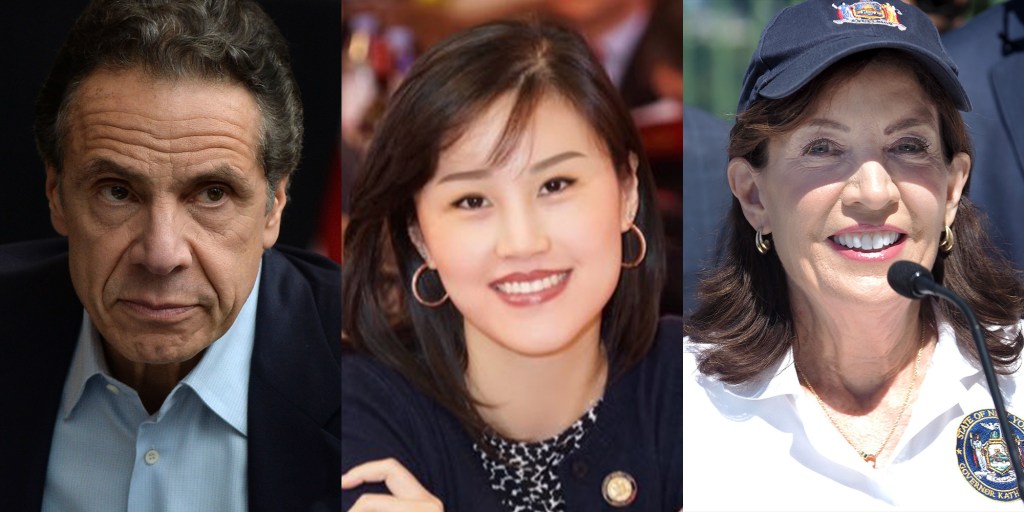On March 31, New York became the 15th U.S. state to legalize recreational marijuana. Parts of the law were effective immediately, allowing anyone over the age of 21 to smoke pot in designated areas and carry up to 3 ounces of weed, or up to 24 grams of concentrated cannabis.
For weed users and advocates, passage of this law was widely celebrated. It paves the path for home-grown cannabis plants, weed cafes, and potentially fewer high-strung New Yorkers. But for Japanese citizens living in New York, laws on the other side of the world could give them pause before lighting up.
Videos by VICE
Just hours after the legislation, the Consulate General of Japan in New York issued a warning that Japanese citizens and tourists who smoke weed in the state could still be punished under Japan’s anti-cannabis law.
“Never touch cannabis, even if it’s legal in the country or region you’re currently visiting or living in,” the mission said in a statement.
The Foreign Ministry in Japan has also urged its citizens living in New York or New Jersey, another state that recently legalized recreational cannabis, to abstain from the drug.
Though Japan’s anti-cannabis laws do not ban smoking, possession could land one up to five years in jail. The country is known to have some of the harshest laws on weed, despite the relatively low number of users.
Only 1.8 percent of the population has smoked at least once in their lifetime, although recent data shows an upward trend in weed users. In 2020, 5,034 people were arrested over cannabis-related crimes in Japan, the highest on official police record.
But do Japanese people living in New York, frankly, give a damn?
Ryuei Matsui, a Japanese citizen and college student in New York, called the consulate’s warning “ridiculous.”
“I’ve been smoking weed for like 8 years now and I think it’s a little bit too late to warn me,” he told VICE World News.
“I understand there is a culture difference between the U.S. and Japan but they can’t tell us shit,” he said, adding that there are studies on the therapeutic properties of marijuana.
Makoto Toyoda, another New York resident and Japanese citizen, said that the warning “does nothing but to further stigmatize weed in the larger social context.
“This is true especially for Japanese residents and immigrants who may not be familiar with weed or understand why people use it because of Japan’s prohibition,” she told VICE World News.
“Regardless of what the Japanese foreign ministry says, people are still going to smoke weed in New York if they want to, and I think outwardly condemning drug use without any way for people to access safe drugs or ways for individuals to make their own healthy decisions are unhelpful to the conversation,” she said.
In the past, the Korean and Singaporean governments have issued similar warnings to its citizens in weed-friendly locales to heed usage. In 2018, when Canada legalized weed, South Koreans in the country were told to abstain.
A spokesperson for Japan’s Ministry of Health, Labor and Welfare told VICE World News, “The anti-cannabis law in Japan is still applicable to Japanese citizens who are abroad. If they break the law, there is a possibility that they could be fined, or prosecuted.”
The official noted, however, that without proper evidence it was difficult to prosecute. “Oftentimes, the laws of where the citizen currently resides take precedence over Japanese laws,” he said.
Mia Arai, a Japanese-American dual citizen in New York, said that if this was the Japanese government’s attempt to decriminalize drugs, or have rehabilitation centers for drug addicts, the warnings would make sense. “But the last time I was there I don’t remember seeing or even hearing about any recovery centers so I’m not confident that that’s what their objective is,” she said.
“Also Japan, from my experience, is a really hush-hush country. So I’m also not surprised that they don’t have that many, or make it know that there are, drug recovery centers. Considering they barely advertise their therapists or other ‘taboo’ doctors and services,” she told VICE World News.
Matsui, the student in New York, said, “My business as an American-Japanese citizen shouldn’t be a concern to them, or for me, since weed is finally legalized here. And they can’t tell me nothing about how I should feel about marijuana. It’s none of their business.”
More
From VICE
-

Andrew Cuomo photo Kristin Callahan/ACE Pictures/Shutterstock. Linda Sun photo @LindaSun84 on X. Kathy Hochul photo Debra L Rothenberg/Shutterstock -

-

-


